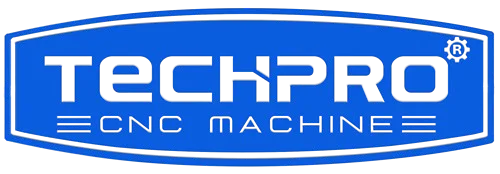TechCNC First-Time Equipment Setup Guide
Established in 2007, TechCNC combines precision engineering with user-centric design. Follow this optimized guide to ensure seamless setup of your CNC machine while prioritizing safety and performance.
Pre-Installation Checklist
- Visual Inspection for Structural Integrity
- Examine the machine for shipping damage. Verify all components (guards, panels, cables) are undamaged and securely packed.
- Confirm voltage compatibility (e.g., 220V/380V) and ensure grounded power outlets meet regional standards.
- Workspace Preparation
- Use a vibration-dampening workbench or reinforced floor surface. Level the machine using TechCNC’s included anti-tilt feet and a digital inclinometer.
- Maintain 24+ inches of clearance around the machine for ventilation and maintenance access.
- Tool & Material Readiness
- Inspect TechCNC-approved cutting tools for defects. Replace worn collets or chipped end mills.
- Pre-cut raw materials to 90% of final dimensions to minimize initial machining stress.
Hardware Configuration
Step 1: Secure Anchoring
- Bolt the machine to a concrete floor (M12 anchors recommended) or use industrial-grade vibration pads for benchtop models.
Step 2: Pneumatic/Hydraulic Integration
- For systems with automatic tool changers:
- Prime hydraulic reservoirs with ISO VG 32 fluid (fill to ¾ tank capacity).
- Adjust pneumatic pressure to 6–8 bar; test clamps using the manual override button.
Step 3: Control System Pairing
- Connect via TechCNC’s proprietary USB-C interface or Ethernet. Install TechCNC Suite v4.2+ (download from our support portal).
Software & Calibration
Machine Profile Setup
- In TechCNC Suite, select your model (e.g., T-Carve Pro 5X) and configure:
- Measurement system (metric/imperial)
- Rapid traverse speed: 80% of max for initial runs
- Emergency stop sensitivity (Level 2 recommended)
Tool Library Configuration
- Input tool specs using the auto-scan feature or manually enter:
- Flute length
- Coating type (TiN, AlCrN)
- Runout tolerance (<0.01mm)
Zero-Point Mastery
- Machine Zero: Home all axes using the physical reference button.
- Workpiece Zero: Use the integrated edge-finder probe or manual touch-off plate.
Dry Run Protocols
- Path Simulation
- Load a test G-code (e.g., TechCNC’s CircleSquare.tnc) and run at 50% speed. Monitor axis synchronization via the 3D preview pane.
- Collision Avoidance Check
- Enable virtual limit barriers in the software. Manually jog the spindle to confirm soft limits.
First-Cut Best Practices
Material Fixturing
- Secure stock using TechCNC’s QuickClamp system:
- For metals: Apply anti-vibration pads between clamps and material.
- For plastics: Use vacuum beds with ≥85 kPa suction.
Parametric Start
- Begin with conservative settings:
- RPM: 60% of tool manufacturer’s max
- Feed rate: 30% of final target
- Depth of cut: 0.5× tool diameter
Live Monitoring
- Watch for:
- Irregular chip formation (adjust coolant flow if needed)
- Spindle load staying below 70% on the software dashboard
Post-Setup Actions
- Data Logging
- Save your machine profile and tool library to TechCNC Cloud or a password-protected USB drive.
- Preventive Maintenance Schedule
- Daily: Lubricate linear guides with #2 lithium grease.
- Monthly: Recalibrate ball screws using the LASER-Comp™ kit.
TechCNC Pro Tips
- Enable Adaptive Feed Control in the software for unstable material conditions.
- Register your machine online to extend the warranty to 36 months.
- Join TechCNC’s Operator Hub for live troubleshooting and firmware updates.
⚠️ Critical Safety Note: Always engage the electromagnetic chuck lock before tool changes. Never bypass the thermal overload relays.
Need Help?
Contact TechCNC Support:
📞 +86 17686683792 | 📧 [email protected]
Precision Engineered in Stuttgart, Certified Globally


